
Heartworm Treatment For Dogs 10 OFF*
1. A soft, dry cough The parasites make their way to the lungs and start multiplying in the lungs and surrounding veins. Coughing may be most noticeable after exercise and may end with fainting. Even light exercise can cause fainting. 2. Inactivity or lethargy
 w- logo.jpg?VersionId=Ri8FhGvZp57mMwkVKXt4hkHoPZ6fdsDp)
Heartworm Disease in Dogs PetMD
The heartworm in dogs that's prevalent in the U.S. goes by the scientific name Dirofilaria immitis or D. immitis. It does not spread from dog to dog, but requires an intermediary, the.
:max_bytes(150000):strip_icc()/GettyImages-1060758888-42f1425a27cc4cb08239da66badbc9dd.jpg)
Parasites in Dogs That You Should Know
What Is Heartworm Disease in Dogs? Dirofilaria immitis is the organism that causes heartworm disease not only in dogs, but also in cats, ferrets, and other mammals. It is a large worm, reaching up to a foot or more in length, and as it completes its life cycle, which takes about six to seven months, it ends up in the heart and pulmonary vessels, where it can live for several more years.
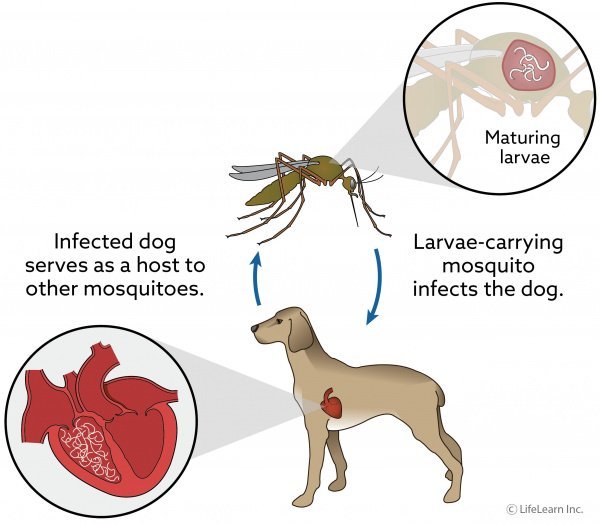
10 Things To Know About Heartworm Disease In Dogs OHL
Heartworm disease is caused by a blood-borne parasite known as Dirofilaria immitis. It is a serious and potentially fatal disease. Adult heartworms are found in the heart, pulmonary artery, and adjacent large blood vessels of infected dogs. Rarely, worms may be found in other parts of the circulatory system.
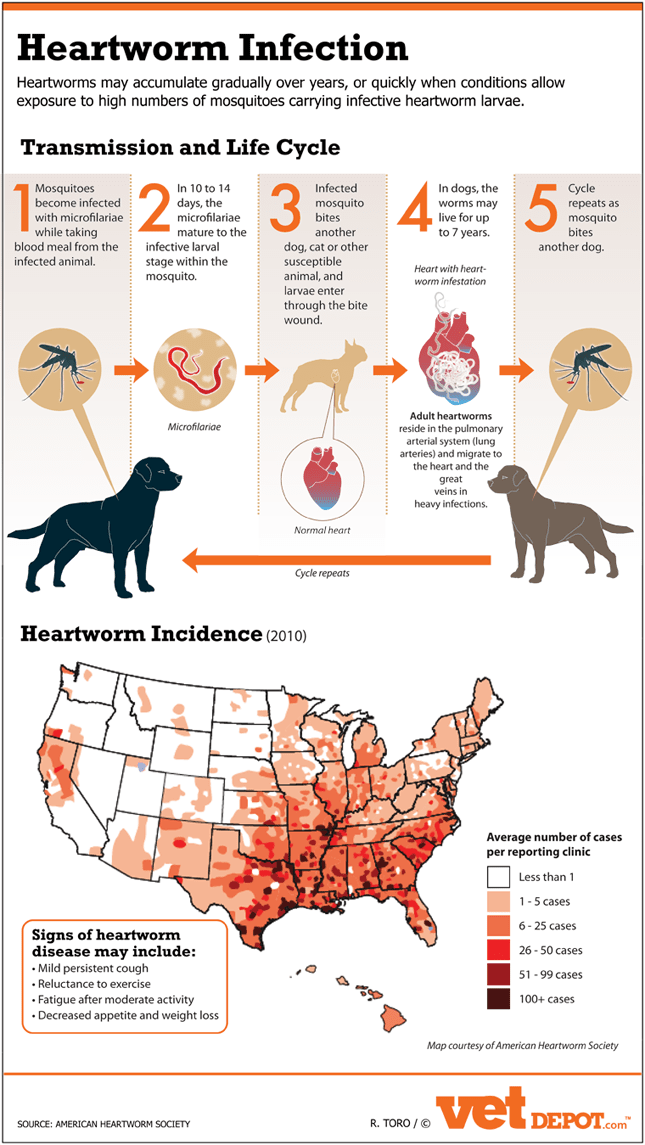
The Dangers of Heartworm Infection Infographic Life With Dogs
The most common symptom of heartworm disease in dogs is a dry, hacking cough. This cough may worsen shortly after the dog has eaten, and it typically also worsens with activity. Although chronic coughing can be caused by many underlying health problems, heartworm is one possibility. Other symptoms include a lack of energy and depression.
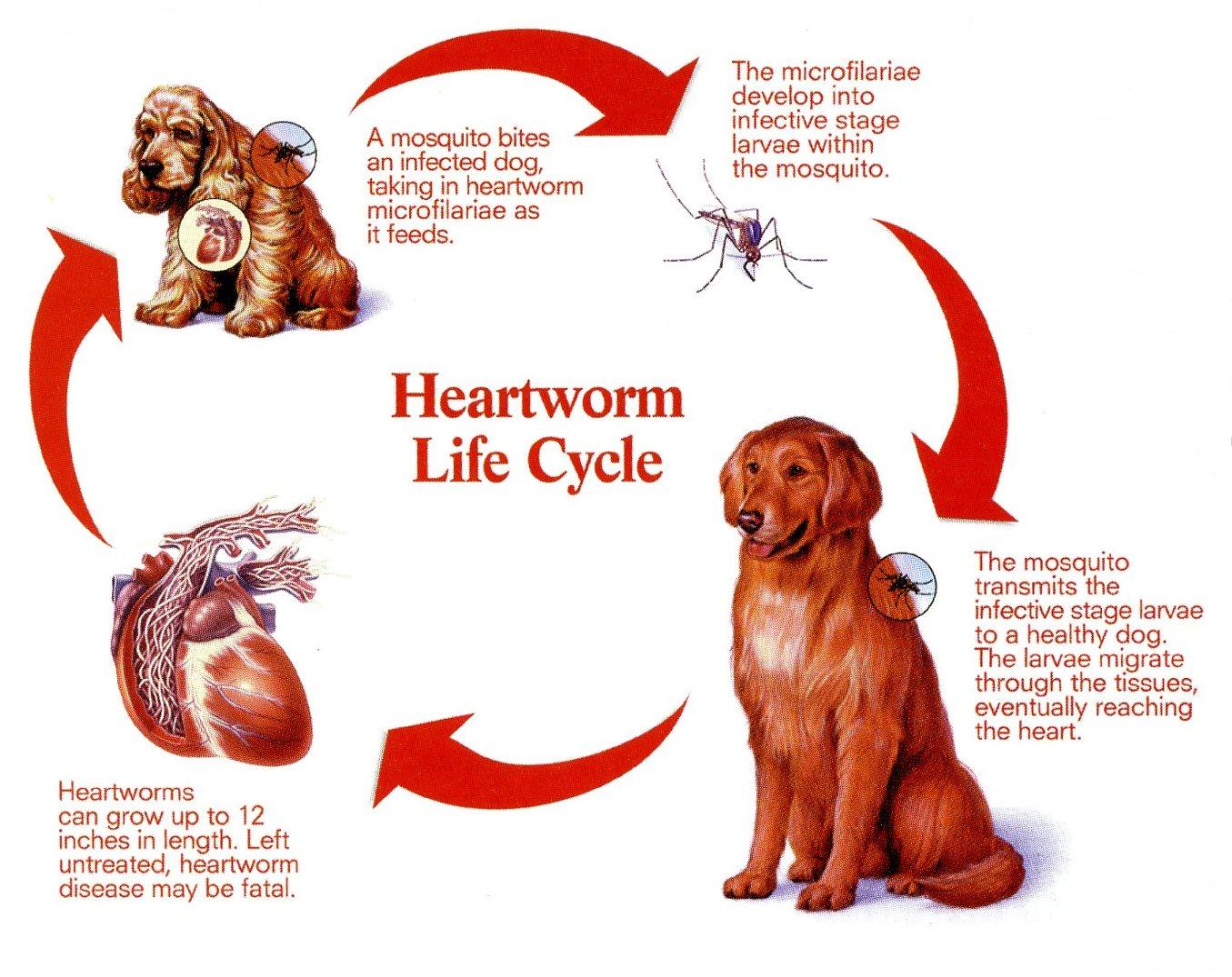
Heartworm Myths Debunked! Pet Sitting and Dog Walking in Cary, Durham
A 9-year-old, male German short-haired pointer is presented for rapid breathing, shortness of breath, and coughing. HISTORY. The dog has lived his entire life in a multidog household in the rural countryside of Tennessee. His vaccination, deworming, and heartworm preventive histories are good, though not perfect.
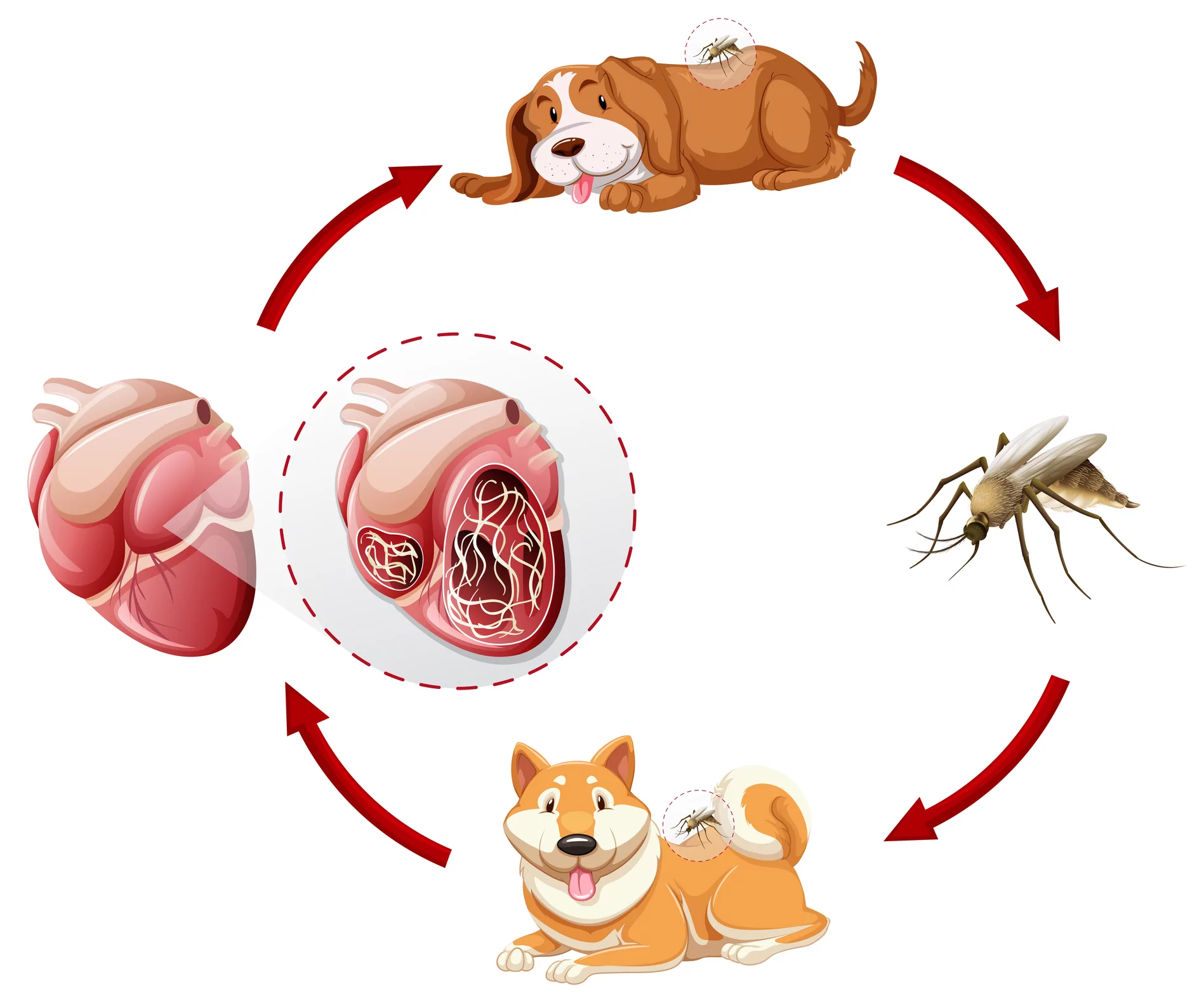
Heartworm in Dogs Symptoms and What to Watch For Palos Animal Hospital
Heartworm disease, or dirofilariasis, is a serious and potentially fatal disease. It is caused by a blood-borne parasite known as Dirofilaria immitis. Adult heartworms are found in the heart, pulmonary artery (one of the big blood vessels from the heart), and adjacent large blood vessels of infected dogs.

Heartworms In Dogs Pros Cons Shopping
The most severe problems that are seen after heartworm treatment in dogs are related to the sudden death of large numbers of worms. Call your veterinarian immediately if you notice any of the following: Your dog develops a cough or a preexisting cough becomes worse. Your dog has difficulty breathing or pants excessively. Your dog becomes weak.
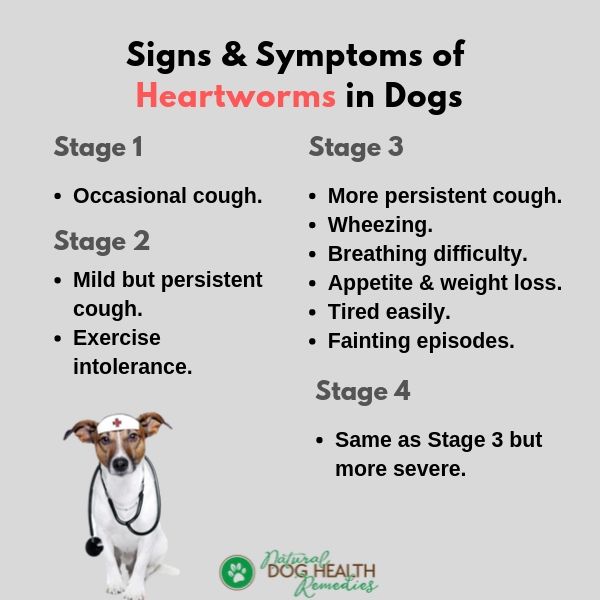
Whats Good For Heartworms In Dogs
Heartworm disease is a serious disease that results in severe lung disease, heart failure, other organ damage, and death in pets, mainly dogs, cats, and ferrets. It is caused by a parasitic.

5 Signs That Indicate Your Dog Has Heartworms Infographic
This is usually a dry, unproductive cough that can be more obvious after exercise. Sometimes dogs may have "coughing fits," that may even cause fainting. Class 2: Lethargy, Inactivity, More Frequent Coughing. One of the first signs of heartworm disease in dogs is lethargy, or acting tired and "lazy."
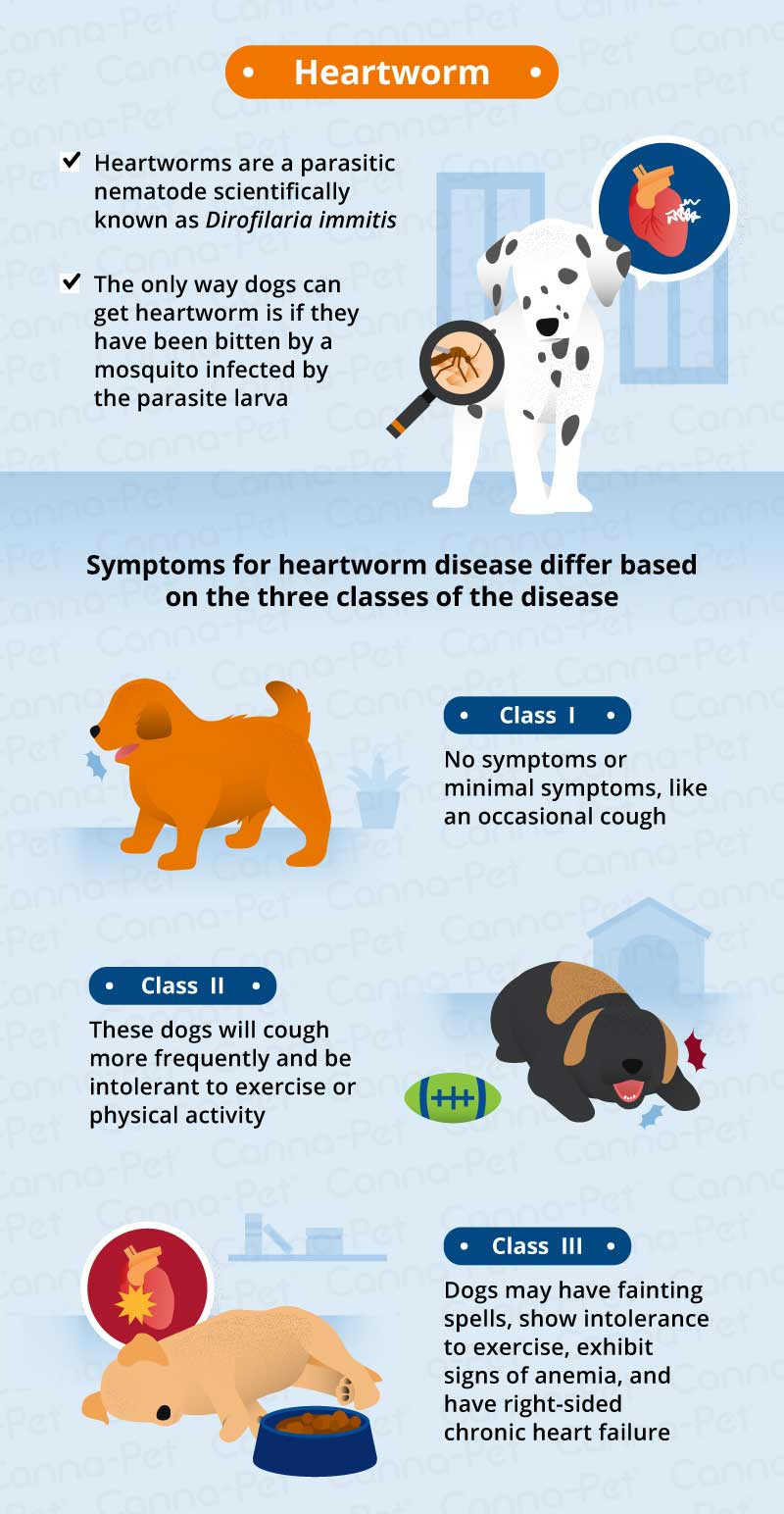
Common Causes of Puppy Coughing CannaPet®
Information for Dog Owners Key Facts Heartworm disease is caused by Dirofilaria immitis (a parasitic worm) that is spread by mosquitoes. Signs of disease can be: • Subclinical, i.e. no obvious signs. • Slowly progressive. Dogs may develop cough, weakness and exercise intolerance. • Severe.

Dog Coughing and Gagging? This Is What It Means and What You Do
Overview Heartworms are spread by mosquitoes, but infections can be prevented by using routine medications. While heartworm disease can be life-threatening, there are effective treatment options for established heartworm infections, and strict rest during the treatment period is critical to recovery. Domestic dogs (and some wild canids) are the definitive host for heartworms, but other animals.

Heartworm Disease Quepolandia
1 Listen for a cough. At first, you might hear your dog softly cough and assume that he's just under the weather. But, if your dog has heartworm disease, the dry cough will linger. You may notice your dog mildly coughing for weeks. [2] Coughing becomes more noticeable after exercise, so pay attention to your dog after you take him out. [3]
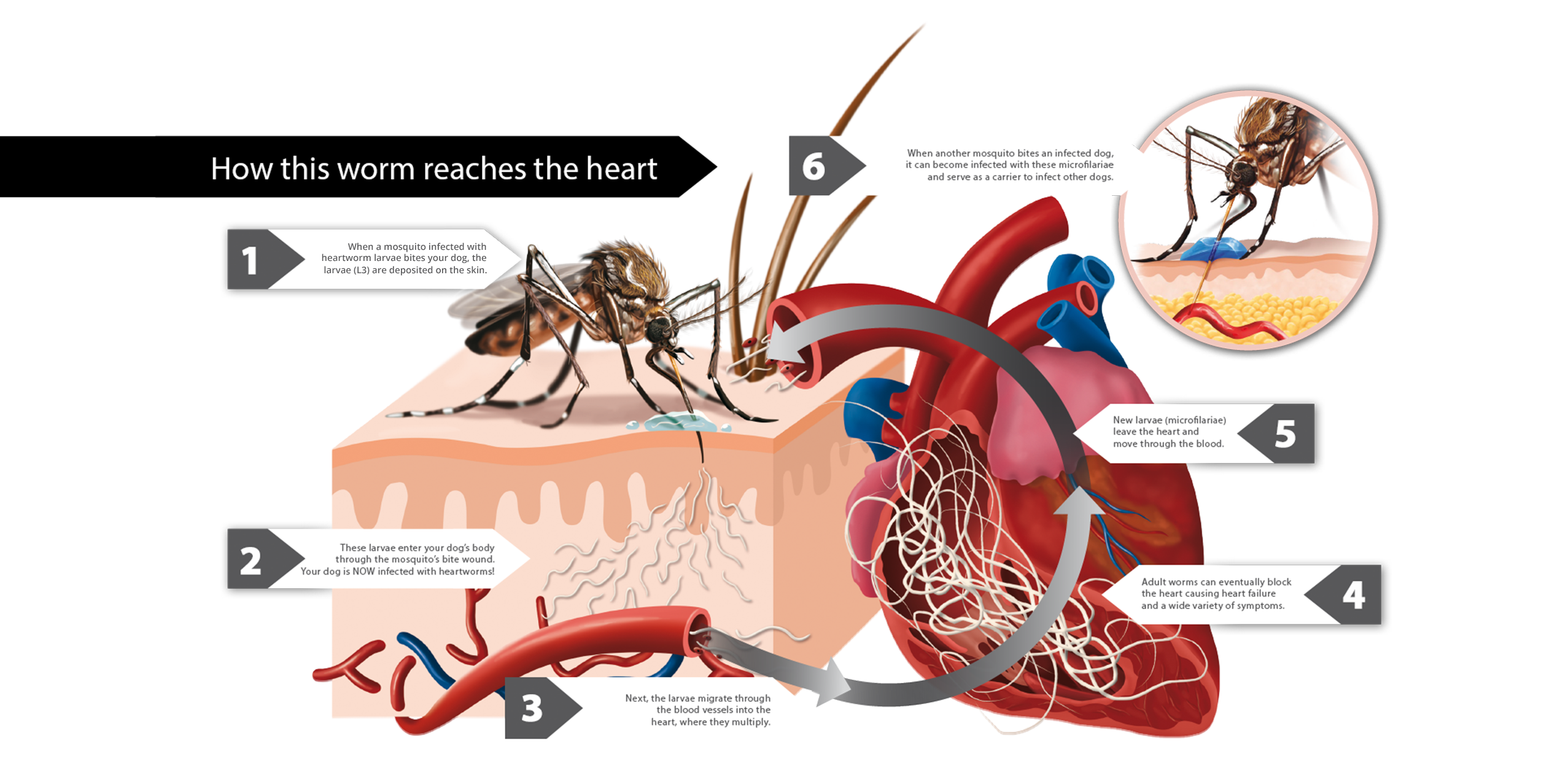
Heartworm Disease MilbeGuard® from Ceva
1 Get injection treatment. The official treatment for heartworms is a medical injection of Immiticide (Melarsomine). This treatment starts off with one injection given to your dog at the vet. Four to six weeks later, this is followed by two more injections that are given 24 hours apart. [2]

Heartworm disease in dogs
1. Persistent Loud Cough. The first and most common sign of heartworm in dogs is a loud cough. Coughing in dogs is unusual and a sign of worry. While a dog coughing once is not anything to be worried about, owners should seek medical help if the cough worsens and becomes persistent. The cough associated with heartworm is obvious and immensely.
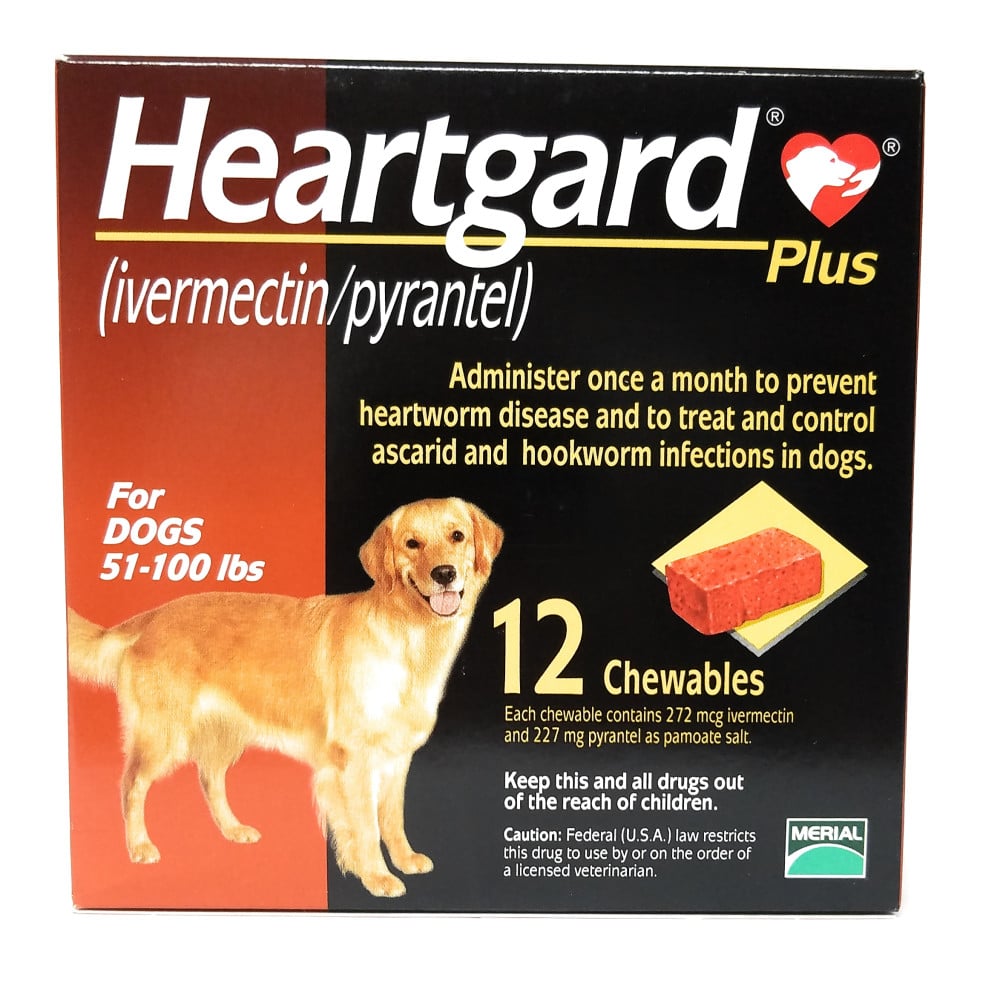
Heartgard Plus Heartworm Medicine For Dogs Vet Approved Rx
Dogs may develop coughing and exercise intolerance once adult heartworms are present in the lungs and heart. As the heartworms reproduce and more develop into adults, dogs experience difficulty breathing, abdominal swelling, collapse, and even sudden death.